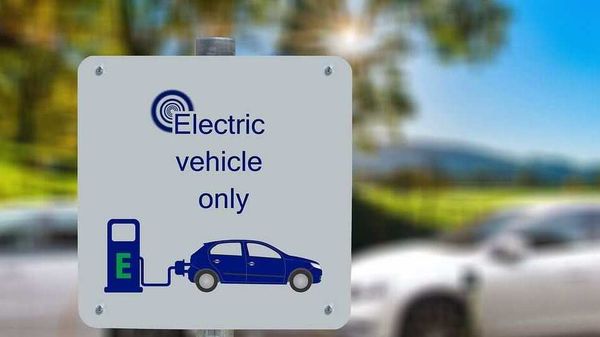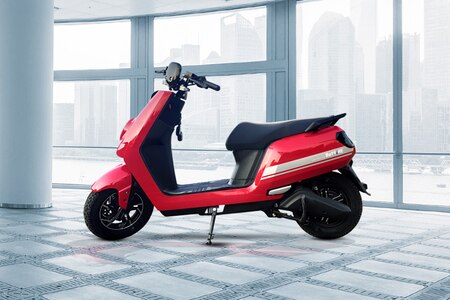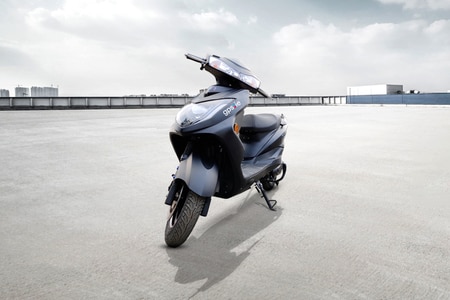Enabling faster adoption of EVs in India through policy support


By Shreyas Shibulal
The world is sitting up and taking note of electric mobility as a sustainable solution to address climate change. Governments and private players across the globe are coming up with solutions to accelerate electric vehicle (EV) adoption. For instance, Israel recently passed a legislation making it mandatory for every building to have an EV charger. Germany requires all gas stations to provide EV charging. Apple maps has recently added electric charging stations in their IOS14 to make it easier for people to locate them.
Also check these Vehicles
In India too, work is underway to overcome obstacles for EV adoption. One of the key challenges is the lack of adequate charging infrastructure. The recent policy initiatives by the Central and state governments seek to remedy that. Let’s take a look at how these initiatives will help and what else needs to be done to build consumer confidence in EVs.
Major amended guidelines on EV charging infrastructure
The recent amendments will encourage innovation and investments in the EV space improving the affordability and accessibility of EV charging infrastructure.
1. Increased affordability with capped tariff rates: The new guidelines limit the tariff for the supply of electricity to the EV public charging stations capping it at 15% of the average cost of supply of power. This positive move will make EVs cost effective for everyday commute and more attractive to the consumer.
2. Combined convenience of battery and vehicle charging: Till now, people had to go to a separate facility to get their discharged or partially discharged EV batteries, recharged. This was inconvenient and expensive due to different electricity tariffs. Post this amendment, for all practical purposes (including tariffs), the battery charging stations (BCS) will be treated at par with the public charging stations (PCS).
3. Separate licensing requirement dropped: Setting up charging stations for electric vehicles will no longer require a separate license under the Electricity Act of 2003. This move will encourage many private players and establishments such as malls, parking lots, educational institutes, and various public as well as privately owned offices to install EV chargers. Accessibility of such charging nodes will encourage mass adoption of EVs.
4. Freedom to choose technology: Electric vehicles need different kinds of charging adopters based on brand and models. Technology innovation has made it possible to have chargers with multiple adaptors which fit into most of the vehicles. The recent guidelines make it easier for PCS owners to install chargers as per the market requirement and stay technology agnostic. PCS can now install fast/slow/moderate chargers as per approved DST/BIS standards whenever notified. This flexibility of type and number of chargers will ensure a democratic choice for both electric vehicle owners and PCS providers.
5. Faster and more transparent expansion of EV charging infrastructure: Prior to the amendment, private charging stations could only operate upon acquiring clearance from a designated DISCOM while adhering to the Ministry of Power’s (MoP) and Central Energy Authority’s (CEA) guidelines and standards. The recent amendment directs DISCOMs to facilitate the expansion of EV charging infrastructure by releasing connections to privately-owned stations based on priority as per the regulations. They are to publish a list of procedures and protocols on their website for private parties to adhere to and conduct checks for compliance. They are also required to facilitate fast or slow charging at residences and offices by adjusting the system capacity accordingly to maintain grid stability.
6. Higher reach and accessibility: The new guidelines mandate a phase wise installation of an appropriate network to ensure that at least 1 EV charging station is installed in a 3km x 3km grid. And one such EV charging station will be set up in every 25kms on both sides of the highways. Higher accessibility to charging stations will reduce range anxiety and increase consumer confidence in EVs.
The missing details that will go a long way in making EVs ubiquitous
Even with this push on creating a wider network of charging stations, it may not be enough. Let’s compare this to CNG stations where there are long queues even though the filling time is much lesser than an EV charging time. In addition to policy changes, there is a need for communication and incentives for people to integrate EV charging in existing facilities. For instance, restaurants and ‘dhabas’ on highways are prime spots where people stop for longer breaks. The government should encourage such restaurant owners to have a charging station with a metered connection to make EV charging available for their customers.
While the recent policy changes are a great step forward, we need a unique way to look at this problem. There is a reason why every vehicle isn’t electric already. Innovation often rests on existing consumer behaviors. When people are used to a few minutes stop at a gas station for petrol or diesel, it’s very difficult to get them to wait for hours to charge their EVs. Battery swapping is an elegant solution addressing the problem of EV charging time. Recently the Indian Oil in collaboration with Sun mobility has already started the battery swapping for commercial vehicles like electric autos, rickshaws, and two-wheelers. However, to make this feasible, there needs to be uniform standards for EV batteries – something that needs policy direction and is not addressed in the present guidelines.
In addition, a government push to private players, who already have the infrastructure, to install EV charging and battery swapping stations could go a long way in accelerating FAME II.
The road ahead to EV support will rely on policy support, transparency, communication, and partnerships. We at Micelio are leading innovation in this space and will continue to work towards larger adoption of electric mobility.
---
Shreyas Shibulal is the Founder and Director at Micelio, India's first seed fund focused solely on clean mobility.
(The views expressed above are personal)








 3.1 kWh
3.1 kWh 60 km
60 km














